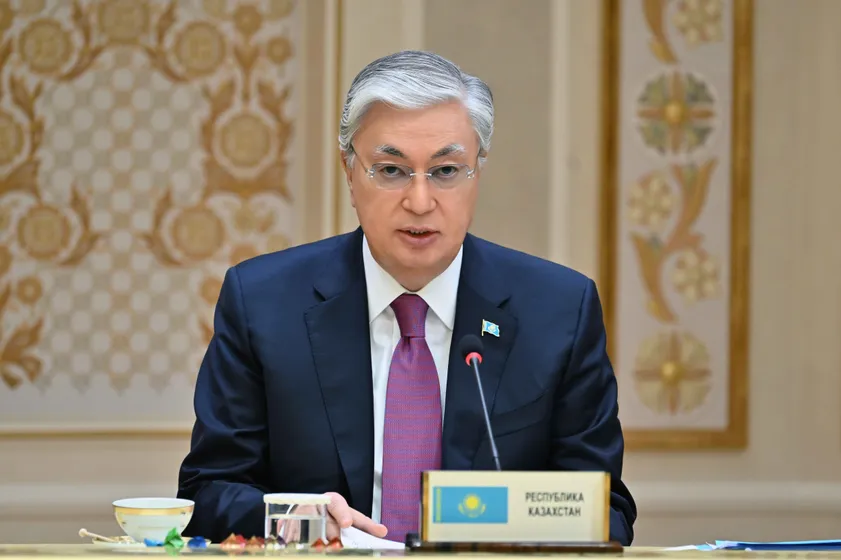On November 23, during a narrow-format meeting of the Collective Security Treaty Organization (CSTO) Collective Security Council, leaders of the member states discussed measures to ensure collective security, reviewed past initiatives, and outlined future plans, QazMonitor reports citing Akorda’s press service.
In his address, President Kassym-Jomart Tokayev acknowledged the challenging international situation, with escalating tensions on the Eurasian continent and within the CSTO's responsibility zone, particularly expressing concern about the situation in the Middle East.
Addressing the conflict's impact, he highlighted Kazakhstan's humanitarian aid of $1 million to Gaza, emphasizing the need to halt the global information and ideological confrontation triggered by events in the region.
“Events around the Gaza Strip have divided the world community into at least two camps. We need to stop before the flames of war engulf all countries and continents," said the president.
The Head of State stated that Kazakhstan welcomes the recent agreements on a temporary ceasefire.
From the very beginning, we insisted that the conflicting parties make every effort to declare a humanitarian pause and use it to develop long-term settlement measures. Moreover, under the auspices of the UN, the right of Palestinians to establish a full-fledged state should be ensured using the 'Two states for two peoples' formula. In this extremely complex situation, it is especially important to faithfully implement the resolutions of the UN Security Council and adhere to the norms of international law.
President Tokayev also drew attention to the challenging situation in Afghanistan and called on the international community to continue providing assistance to the Afghan people.
He mentioned that this year, Kazakhstan sent humanitarian aid, including food, essential goods, and medicines, and emergency assistance after an earthquake in the city of Herat.
He also emphasized Kazakhstan's readiness to jointly confront challenges, including the increase in drug trafficking, weapons proliferation, transnational crime, and illegal migration.
In formulating the tactics and strategy of the CSTO, we must undoubtedly take into account the threats and challenges of modern realities. At the same time, in my opinion, there is no need to constantly talk about the growing threats to the security of CSTO member states, even if they exist. After all, threats have always existed. This is the nature of the international community. Frequent statements on this topic create the illusion that we are afraid of someone. Such statements can also receive, and apparently already receive a completely wrong interpretation. The rhetoric of the Organization should be firm yet extremely respectful, taking into account the dignity of the member states and their collective military-political potential and power. The CSTO has demonstrated its success as an authoritative military-political organization, but new tasks lie ahead, which must align with the constructive mood of its member states.
Looking ahead, President Tokayev outlined the significant progress made in enhancing the organization's potential and mechanisms to counter challenges and threats throughout the year. He announced plans to articulate Kazakhstan's priorities during its chairmanship, starting January 1, 2024, at the upcoming expanded session.










